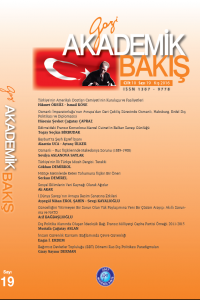Abstract
Kirkuk, with its large oil reserves, has constituted one of the most significant points of controversy politically, ethnically, and economically in modern Iraq. Historically a Turkmen city, Kirkuk underwent a massive Arabization policy during the Baathist regime in order to modify the city’s demographics. This formed the major means by which the Baathist regime sought to control this multiethnic and multi-religious city.
After the US invasion of Iraq in 2003, Kurds launched a massive Kurdification program whereby Turkmen and Arabs have been encouraged to leave the city. The demography of the city has been changing in favor of the Kurds, who have resorted to all means, not excluding crimes against humanity, to form the majority of the city’s population before the referendum that will decide not only the status of the city but also the future of Iraq and the Middle East. In supporting the Kurds, Western countries have ignored the suffering of the Turkmen, the primary victims of Arabization in the past and nowadays of Kurdification.
Keywords
References
- ...
Details
| Journal Section | Articles |
|---|---|
| Authors | |
| Publication Date | December 15, 2016 |
| Published in Issue | Year 2016 Volume: 9 Issue: 18 |

